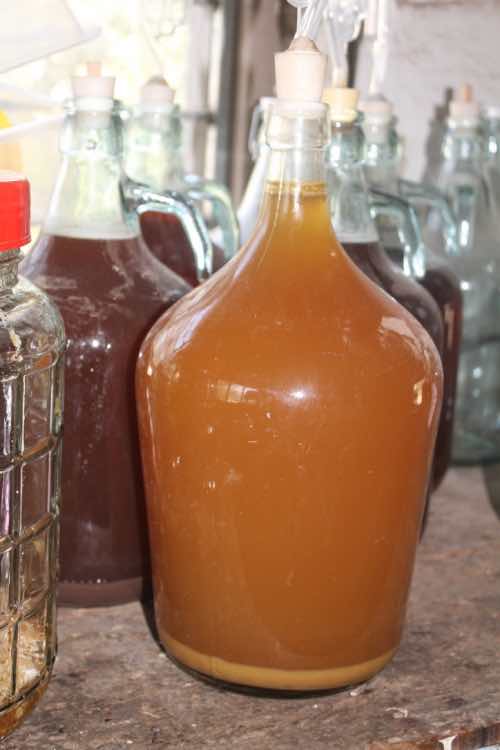- All You Need to Know
Benign essential tremor syndrome
The benign essential tremor syndrome causes uncontrollable shaking; it's usually not serious, hence the name. Typically it begins in mid age, and gradually worsens, occasionally becoming severe. Unlike that of Parkinson's disease which occurs at rest, this is an "action" tremor.
It does not occur when the hands are at rest but when you reach out for something, or are holding an article such as a sheet of paper which begins to shake uncontrollably, and often embarrassingly; the so-called postural tremor. It is worse when you're under stress, for example having to introduce someone whose name you have forgotten.
It typically begins in one hand, and may move to the other; and the rest of the body. Since it gets worse with movement of a body part, it's also known as an "intention tremor." The classic neurological test is to ask the patient to touch his or her nose; this becomes increasingly difficult as the finger approaches the face.
If the finger in unable to stop, so-called "past pointing," cerebellar disease is suspected.
The word benign is often dropped nowadays as an essential tremor is now thought to be associated with other more serious symptoms.
 Young fava bean pods can provide sufficient L-dopa for many patients suffering from Parkinson's disease.
Young fava bean pods can provide sufficient L-dopa for many patients suffering from Parkinson's disease.Let's get one thing straight; since I am a chiropractor, not a neurologist, but with a deep interest in the subject as all of our profession should have, look elsewhere too for confirmation of these facts.
There are two other reasons that I have personally studied this condition. I myself suffer from benign essential tremor syndrome. It began some twenty-five years ago, and has not worsened. In fact, recently it has improved dramatically after an astonishing discovery; more about that lower down.
There was no known cause and an investigation by a neurologist shed no light on my condition.
So there are two types of tremors; those which happen only when an intentional movement is initiated, and those which occur at rest.
A resting tremor is quite different; typical is the pill-rolling shaking of Parkinson's disease which is anything but benign.
Parkinson's disease
The shaking of Parkinson's disease is quite different to that of a benign essential tremor syndrome. It occurs when the body part is at rest. For example, the lower jaw is often affected, not just when speaking or chewing; it is not related to intention but continuous.
Parkinson's disease is far more likely to seriously affect other parts of the body. Speech may become slurred and walking tends to be a shuffling yet strangely hurried gait; those suffering from it seem almost to run. It is known medically as festination.
Parkinson's disease is caused by the death of a nucleus in the brain known as the Substantia Nigra; normally it should produce a neurotransmitter called dopamine that sends messages to other cells, mediating many different functions in the body.
Benign essential tremor syndrome
Benign essential tremor syndrome most often affects the hands; for example when holding up a book, but can also influence any part of the body. The involuntary shaking or trembling varies from hardly noticeable to really quite dramatic. It typically worsens very slowly with age.
Blood sugar plays a role so that those who are insulin-resistant with wild swings of glucose are more affected; especially should it become particularly low. The early part of a long fast may for example increase the tremor until the body moves from using glucose to ketones for energy. It may be worse in the early morning when blood sugar is at its lowest.
A simple test is to draw a spiral which may be very shaky.
Holding a sheet of paper or book in front of one with arms outstretched is another test; as when singing in a choir. Is there a tremor?
What causes essential tremor syndrome?
The cause of benign essential tremor syndrome is unknown, but it sometimes has a genetic basis. Complicating this supposition is the fact that children inherit not only their parents' genes but also their lifestyles and frequently their diet.
It may also be a side-effect of many drugs. More complex is that the tendency to turn to medication for the treatment of poor health is also familial; that is a learned coping mechanism, muddying the water by suggesting a genetic predisposition.
Alcohol abuse, diseases such as multiple sclerosis and liver failure have all been implicated as causes of tremors; kidney and thyroid conditions too.
Treatment of tremors with fava beans
It has long been known that the resting tremor of Parkinson's disease is caused by a deficiency of the neurotransmitter dopamine after the death of a nucleus in the brain known as the Substantia Nigra.
Medically the condition is treated with drugs that supply dopamine, but Parkinson's patients will tell you that often all is not well.
Certain legumes, in particular fava beans and mucuna pruriens, can supply a steady supply of L-dopa, the precursor of the hormone; it has a longer lasting effect without the highs and lows of the medication.
Fava beans are difficult to procure, but a concentrate from mucuna pruriens is available in tablet form; it has long been used in ayurvedic medicine.
There is nothing in the literature to suggest that these beans can assist in the treatment of benign essential tremor syndrome, but only Parkinson's which is dopamine-mediated.
However, a substantial proportion of patients with an essential tremor eventually develop full blown Parkinson's disease.
Eggs Florentine with added fava beans
 Eggs Florentine with added fava beans
Eggs Florentine with added fava beansOn a personal note I was astonished to discover that consumption daily of fava beans greatly contributed to relieving my own benign essential tremor syndrome. Treat this as an anecdote; there is no confirmation in the scientific literature.
Fava beans for the benign essential tremor syndrome may not be to everyone's liking, little grey ticks but we have two ways to get round this visual abhorrence. Firstly only enjoy them young and freshly-picked, and secondly slice up the young fruit, pod and all, and you will not be visualising the little blood suckers.
The pods of young fava beans have even more L-dopa than the beans.
If you have a tremor syndrome, and abhor pills, then you really should consider growing the favas, also known as broad beans; twice a day. Half a cup of the sliced very young fruit for breakfast and dinner is about the right amount; and if you don't like them, think of it as medicine, which it is.
Medicine never tastes good but you will enjoy the results this nutrient provides those suffering from tremors; if you can find, or better still grow the young pods. Added spicy peppers improve the flavour.
 Broad bean flowers
Broad bean flowersThe microbiome
Microbes in the healthy gut also produce quite large amounts of dopamine; but it is dependent on a diverse community of bacteria, viruses and yeast cells in the colon.
Enjoying fermented foods such as sauerkraut and kefir contribute to the normal flora; the brewing of unpasteurised wines and beers too.

The Blue Zones where typically a zestful and healthy old age is the norm, folk consume moderate quantities of locally brewed, unpasteurised wines. Above are different meads typically brewed for example in Ikaria where beekeeping is common; they are rich in pollen and living, friendly yeast cells.
The understanding is that a healthy microbiome, rich in diversity and numbers helps prevent pathogens such as Candida from taking over; and produce dopamine, the "happy hormone."
It is no coincidence that in all five Blue Zone countries gardeners grow and consume large quantities of fava beans.
Sadly convenience foods have taken over with a public so consumed by the pressure of time that they no longer believe or care that a healthy lifestyle is important.
Commercial breads, beers and wines are so detrimental to our wellness but we no longer have the inclination to bake, ferment and brew our own food and drink; the microbiome suffers with the resultant surge in chronic degenerative diseases. Parkinson's and benign essential tremor syndrome are just one tiny part of the rapid decline in health of the general population.
We could learn a thing or two from the Blue Zone people where there are no old age homes or gyms; they have naturally retained a lifestyle that is now totally foreign to most of us. Researcher Dan Buettner tells us about these folk.
When browsing these links use right click and "Open Link in New Tab", or you may get a bad gateway signal.
- Home
- Tingling arms
- Benign Essential Tremor Syndrome
Did you find this page useful? Then perhaps forward it to a suffering friend. Better still, Tweet or Face Book it.
